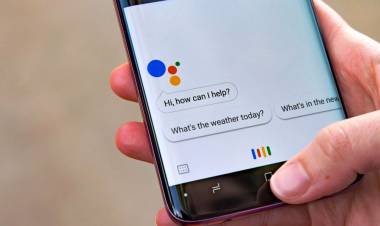Smoking, Depression Apps Seen Selling Your Data to Google, Facebook: Study
The pitch: Health applications for clients who are fighting sadness or need to stop smoking.
The issue: Many of the applications intended to follow a client's advancement are sharing the individual subtleties they gather with outsiders, similar to Google and Facebook, without assent.
That is as indicated by an examination distributed Friday in the diary JAMA Network Open. Scientists state the discoveries are particularly vital in emotional well-being, given social marks of shame and the dangers of having touchy data shared unwittingly. What's more, since numerous wellbeing applications aren't liable to government guideline, scientists state, shoppers and clinicians must battle with what data is being gone into these applications - and who else can get to it.
"Computerized information doesn't leave," said John Torous, a co-creator of the report. "A piece of the hazard is that we don't completely realize who is going to assembled this information, when and where it will show up again and in what setting. . . . Information appears to finish up in the hands of the wrong individuals to an ever increasing extent."
Torous heads the computerized psychiatry division at a Harvard Medical School-partnered showing emergency clinic, where he likewise is a staff therapist and an employee. He said there should be a "reminder" in the advanced wellbeing field since, "We can't treat individuals' close to home information like it's the individual property of these application designers."
The examination followed three-dozen applications focused at individuals with dejection or who need to stop smoking, and found that just 33% of them precisely passed on that information would be gotten to by an outsider. The investigation took a gander at the top-positioned applications for sadness and smoking however didn't recognize them.
Just 11 of the 36 applications examined had a security arrangement. Of the 25 without such a strategy, everything except two explicitly said that client information would be imparted to outsiders. In any case, the specialists confirmed that information sharing really happened in 33 of the 36 applications.
So not exclusively did most applications share information, most gave clients no sign sharing was a plausibility.
Security is a common inquiry in the computerized domain. Prior this month, The Washington Post detailed that information gathered by well known period-and pregnancy-following applications frequently are not bound to clients. Or maybe, applications like Ovia give businesses and wellbeing back up plans a focal point into clients' close to home data about pregnancy and labor - frequently under the umbrella of corporate health.
On account of Ovia, for instance, bosses who pay the applications' engineer can offer their laborers an uncommon variant of the applications that, thus, transmits wellbeing information - in a totaled structure - to an inside organization site that can be seen by individuals in HR.
Information and protection issues among wellbeing applications frequently come from their plans of action, the specialists composed. Since numerous guarantors don't cover these applications, engineers commonly need to pitch memberships or clients' close to home information to remain reasonable.
The applications in the investigation didn't transmit information that could quickly distinguish a client, Torous said. However, they did discharge strings of data "that can start the procedure of re-distinguishing proof." If, for instance, those strings get sent to Facebook investigation, Torous stated, at that point the inquiry progresses toward becoming, "Who is assembling this all and who gets the opportunity to get to this?"
"We've seen enough stories that . . . there's incentive in [the data], or else the application producers wouldn't send them off," Torous said. "What's more, the greater point is that [the apps] weren't notwithstanding uncovering it."
With the ascent of wellbeing and health applications, it very well may mistake for clients to recognize items that expressly offer therapeutic consideration, and those that don't. In any case, numerous wellbeing applications mark themselves as "health instruments" in their arrangements to get around enactment that orders security insurances for client information, as HIPAA, the specialists composed.
Torous gave the case of applications that address "stress and nervousness, or disposition and sadness."
"In psychological well-being, it's a hazy line between what's basic consideration and what's self improvement," he said.
Torous proposed a couple of approaches to screen for solid - and secure - applications. Deliberately read the protection approaches. Check whether an application has been refreshed in the previous 180 days and, if not, proceed onward. Endeavor to measure whether you trust the application designer.
For instance, Torous stated, psychological well-being applications created by the Department of Veterans Affairs plainly state that client information isn't transmitted somewhere else. And keeping in mind that the applications are commonly designed for veterans, the devices can regularly apply to other people. The Food and Drug Administration, alongside other worldwide governments and organizations, are additionally creating approaches to make wellbeing applications and other advanced wellbeing devices increasingly private and secure.
"Positively in case you're sharing a ton of data about your psychological well-being, and the application isn't really helping you, why put yourself in danger?" Torous said.

 admin
admin 



















Comments (0)
Facebook Comments (0)